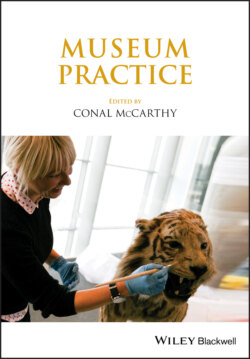Читать книгу Museum Practice - Группа авторов - Страница 94
Conclusion
ОглавлениеThe AHRC research network tested the value of the new ethics to address key ethics issues with which museums are grappling and its relevance to developing socially purposeful museums. The conversations that emerged from the network argued that reconceptualizing ethics as a discourse, informed by both intellectual engagement and social practice, is integral to museums’ continued relevance and sustainability. Understanding the significance and confluences among values, case studies, and codes has the potential to help museum practitioners recognize the benefits of self-reflective practice through the lens of the new museum ethics. Clearly, building a strategic approach to embed the new museum ethics is challenging work. But regulation per se is not an adequate response to the ethics quandaries of the twenty-first century. In fact, the reliance on codes alone too often becomes a justification for museums to avoid difficult ethics conversations, particularly around values, principles, and social responsibility. The new museum ethics represents an opportunity for growth, rather than a burden of compliance.
Engaging in the new museum ethics is a twenty-first-century skill that museum and museum studies leaders must build among students, professionals, and communities. The new ethics is a powerful tool to effect organizational change and work toward social responsibility. It has the capacity to strengthen public trust by equipping museum practitioners to deal sensitively and fairly with the shifting ethical terrain, now and in the future. To develop a level of comfort with ethical decision-making based on a range of social concerns, is to accept the complexity and dynamism of ethics discourse that both reflects and shapes the real issues that museums encounter.
